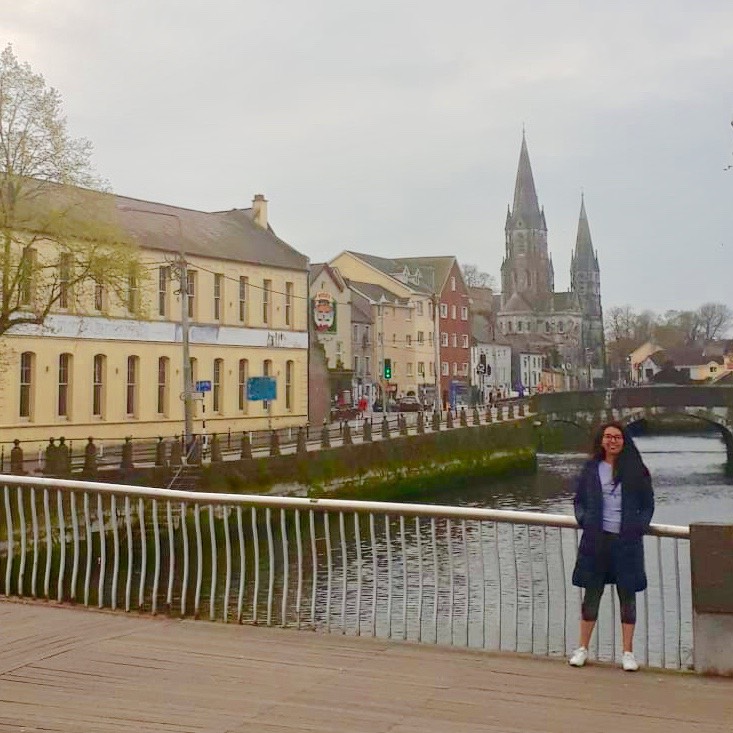The reality of international students around the world is not being the best these days. Particularly in Australia, the government has announced throughout this crisis a series of relief packages to cope with job losses and closure of industries, but none of these benefits is, at least for now, intended for people with temporary residence, the category in which we find international students.
And since we are so many in Australia and around the world, at Puravida we wanted to know the support that international students could be receiving around the world, so we contacted international students in Canada, Germany, France, Spain, Ireland and New Zealand, to find out if these countries are including them in their support packages to face the current COVID-19 outbreak crisis.
The situation in Australia
So far, the large financial support packages have been intended only for citizens or permanent residents, however international students going through difficult times can request access to their Superannuation, funds that until now we could only withdraw once our visas in Australia come to an end. This is the only economic measure that has been extended to all Australian residents, regardless of whether your visa is temporary or permanent. To access your funds, you have to meet certain requirements, including having been in Australia for more than 12 months. In addition, there are other kinds of help related to mental health, access to medical care and rent reduction students can apply for as well. You can check further information about financial and health care support in this link.

Sydney, Australia.
The lack of extra-economic measures are justified, to a great extent, due to the requirements asked at the time of applying for a student visa, mainly the confirmation of economic solvency for, at least, the first year of studies. But what about students staying in Australia for a longer period? Many student visas are granted for two and up to three consecutive years, a time when it is not necessary to demonstrate your financial solvency again, and that is when most international students begin to depend on a weekly income, working partially to continue fulfilling the academic commitments that we have.
However, many international students have been left without work and others have seen their working hours reduced by up to 80%, having to appeal – at best – to their savings or to the solidarity of their close ones, who have organised specific food and basic need helps, which has undoubtedly helped to reduce the stress and uncertainty of these students.
These are difficult times for everyone, but if we add to this new reality being also away from home and without much financial certainty, the scenario becomes even more complex. We wanted to talk, then, with international students in other countries to find out how they are going with these new times and if they are receiving some financial support to face this crisis.
The case in Canada
Canada was one of the first countries to announce that international students would be included in measures to help those who lost their jobs as a result of the COVID-19 crisis. Like any Canadian, international students may apply for a temporary income of up to CAN$500 a week for up to 16 weeks, if they meet few basic requirements, such as having lost their job due to the virus and have not voluntarily quit; have had an income in 2019 of at least CAN$5,000 or in the 12 months before the application date.
Another benefit that students who have spent more time in the country can apply for is unemployment insurance. Oscar Jeldres is a Chilean student, Biochemist by profession, who has spent almost three years in Canada and, due to his current situation, he can obtain Employment Insurance (EI). “Since I had worked in Canada for 52 weeks, I was able to apply to EI, which will pay me for the weeks I have no income. But that will only last until May when my new visa begins. Then, as a student, I could apply for a 500 Canadian dollars allowance a week for up to 16 weeks”.
– And that benefit applies to all students, be they, citizens or foreigners?
It is for all those who don’t qualify for Employment Insurance and whose work has been affected by COVID-19, regardless of whether you are a permanent resident or not.

Toronto, Canada.
Óscar first came to Canada to study English and he’s about to start a career in Healthcare Administration in Newmarket, near Toronto. “I chose Canada because of its quality of life and because it’s not as far as Australia or New Zealand” and, therefore, would like to apply to some permanent residency program after completing their studies. Óscar came to Canada to stay for good, and the government’s stance in helping everyone in need in this time of crisis, including international students or anyone with temporary residence, does nothing but reaffirm his decision.
The contrasts between Germany, France and Spain
We know that Europe has been hit hard by this crisis and, with it, the situation of international students also becomes uncertain. Let’s see what happens, first, in Germany.
“If the employer wants to keep the employment contract with you, but cannot give you a job, the company registers with the job agency Agentur der Arbeit, in the category called Kurzarbeitergeld (job money for job cuts). Then the worker’s salary is assumed by the State through the Agentur der Arbeit, with a maximum of 60% of the net salary (if you have children it is 67%). It has nothing to do with being a foreign student, it has to do with the employment contract you have”, says Angélica Rebolledo, a Chilean social worker specialising in migration issues, who has lived in German lands for several years now.
In Germany as an international student you can work up to 20 hours a week, but if the job is related to what you’re studying it can be done on a full-time basis. However, international students have easier access to casual or part-time jobs, among which the most common are called Minijobs. And even though these jobs can be seen as more informal, due to the number of hours and the earnings, if the student has worked for more than 12 months with a contract of more than 15 hours per week and is fired, they have also the right to get unemployment insurance for a period of six months.
Although for Catalina Osben, a Chilean student of International Law living in Bochum, her experience has told her something different: “I had one of these jobs (Minijobs) and the company gave us a ‘pause’ in the contract until the Coronavirus problem can be solved”. So she doesn’t have access to any state support because she hasn’t been fired but in a work break.

Picture of Catalina Osben.
Catalina, 23 years old, also says that finding a job has become increasingly difficult since this crisis began, since the market is saturated “due to the large number of people who worked in events, restaurants, bars, etc. and have become unemployed” and she assures, concerned, that at this moment “as a foreign student I do not have access to any type of government benefit, only some can access a bank loan to pay for these months when many people ran out of income.”
In this sense, Angélica Rebolledo emphasizes the fact that “Germany does not grant a visa to a foreign student who doesn’t have their financial needs assured for one year. Each student must show when applying for the visa, savings account blocked with €10,300 of which can withdraw monthly only what they need per month, stipulated by Germany at €858”. Unlike Australia, the international student visa is always for one year and each time you apply again, the same €10,300 must be shown. For this reason, international students who were not working at the time of the COVID-19 outbreak, or who are on a work pause like Catalina, can’t access any governmental benefits.
While in France, as an international student you can access financial support from the government, and not only related to the pandemic that we all already know about. This is how Maximiliano Arce lived this experience, a Chilean student who came to Lyon to learn French in 2019 and who, after finishing his language studies, will start with a course to become Maître d’hôtel at the Académie de Paul Bocuse in the same city.
The crisis, he says, has only affected him in seeing his plans delayed but that “financially, not at all. Because I have a work contract, the government pays my employer 100% of my salary and (the government) leaves the mutual, university and lease accounts frozen. They also extended in 3 months our visas for any paperwork you need to do, if you want to stay in France”. Maximiliano works as a waiter in a restaurant in Lyon and, for now, he spends his days in quarantine hoping to return to school as soon as possible.
And in Paris, Gabriel Ramírez, also Chilean but studying a Master’s in Mathematics, even though for now he doesn’t need to ask for any financial help from the French government, he already receives some benefits for being a student under the age of 26. Among them, Gabriel highlights: “The state returns 40% of my rent every month, I have a student transport pass that allows me to travel unlimitedly for a very reasonable price and I have full health insurance coverage, automatically as a foreign student ”.

Picture of Gabriel Ramírez.
Gabriel was fortunate enough to finish his course term just before the crisis began, so now he is only doing his thesis in quarantine. “In my career, a computer, notebooks and pencils are enough to work. So I have continued doing the thesis meeting with my teacher on Skype”.
In Spain, on the other hand, the outlook is not so encouraging. Several international students comment that finding a job with the restrictions of 20 hours per week is very difficult since employers prefer to hire Spaniards first and on a full-time basis. Which is why it is recommended that Latin Americans who want to study in Spain do so financially prepared, considering the possibility of not needing to work while studying.
This is the case of Luis Rivera, a 36-year-old Chilean, a psychologist who is in Barcelona doing a Master in Legal Psychology and Forensic Psychological Expertise. “It is an exclusive master’s degree from the Universidad Autónoma de Barcelona, which I chose given that the teachers are highly outstanding professionals in research (some of them are world leaders) so it has been an enormous experience to work with them”, he says.
He also clarifies that “the crisis has affected me mainly economically, since being paying for everything with my resources (without any scholarships), the money I had in Chile for this second year has been devalued with the change and I have lost a lot of money”. Regarding financial support from the Spanish government, his answer is clear: nothing.
For Valeria Retamal, Professor of English and Spanish as a foreign language, studying in Spain a Master in Applied Linguistics at the Universidad Barcelona, this Coronavirus called off what was her first chance to get a job contract and, with it, her hope to receive support from the Spanish government soon.

Picture of Valeria Retamal.
Like many other international students, after a while and to support herself, Valeria started working casually as a “canguro” (kangaroo in Spanish, a type of babysitter) for two Spanish families. “My role as a canguro, twice a week, was to pick up the kids at school on their lunchtime, have lunch together in either of these two houses and do activities in English (always speaking in English with them) and then go to drop them off at school again”. Her role with the kids was appreciated and one of these families decided to hire her “so we started to gather all the paperwork needed, they even made an appointment with the city council, but the quarantine just started then and everything went down”.
With this new scenario, Valeria assures that she needs to ask for help but “so far, no other Chilean student I’ve met, not even my classmates know if there is any information about it (…) Even though my program is in English and students are mostly international – of 27 people only four are Spanish-, we are all in the same situation: total uncertainty and little support”.
The financial packages that the Spanish government has given remain unclear when it comes to defining whether or not a student can apply for it. However, it is implied that if you have an employment contract as an international student, you could access some of the benefits on this list. With all, more and more universities are offering help within their possibilities, at least, freezing the payment of the fee or delaying the assessments and exams due dates, so international students must confirm directly with their college if they can apply to these benefits.
The best surprise: Ireland
Cork is the second-largest city in Ireland, and the one chosen by María José Guerra to study English since 2019. The city, highly recommended by a friend, has not disappointed her, and even more so now because additionally, she is receiving financial support from the government like she’s just another Irish, after not being able to continue working as a waitress in a busy restaurant when the lockdown started in the country.

Picture of María José Guerra.
“I was unemployed for two weeks, and in those two weeks, fortunately, I had savings to relax and make decisions. In the meantime, the Irish government announced the support fund, which is not a bonus, it is an emergency salary for all the people who were left without work. Initially, it was €203 per week, more or less what we usually earn as students, since we are allowed to work 20 hours a week. The weeks passed, the lockdown was declared and the government announced that this emergency payment was not going to be €203 but €350 for the people who lost our job, which was very favourable for us”.
Although the plans of this Chilean teacher are currently halted due to the worldwide situation, she claims that the crisis couldn’t find her in a better place. “The only really important thing I have in Chile is my family and close friends, but here the truth is I have financial and life stability assured for 12 weeks for everyone, which seems pretty incredible to me.”
María José can’t stop highlighting the good practices which have taken place in Ireland during these weeks such as the decision made about switch private hospitals into public ones, that is to say, medical care is going to be free for everyone, and she stresses “regardless of nationality, regardless of gender, regardless of race, regardless of anything. We are all human beings … Even now the Prime Minister is working as a doctor, imagine! Ireland is an exceptional place, this country and its people have all my respect.”
What about international students in New Zealand?
International students in New Zealand are having better luck than their peers in Australia. If, as an international student, you had a legal employment contract and your employer meets the requirements, you are covered by the wage subsidy from the government. This benefit is paid directly to employers, who must transfer the payment to workers who can no longer fulfil their duties due to the COVID-19 outbreak.
This is exactly what Carlos Porras, a 26-year-old Colombian who came to New Zealand to study English in Auckland, did. And although classes are suspended for now until further notice, same as his job at Air New Zealand at Auckland airport, Carlos can wait calmly receiving 80% of his normal salary from the government.
“The government helps those of us who have a legal contract if our employer processes the subsidy,” says Carlos, expecting his first payment within the next few days.
In similar circumstances is Dinna Florez, also on a student visa to learn English in Auckland. Dinna works as a dishwasher in a restaurant and while she is grateful for this governmental support, she is concerned about the situation with the now online English classes, cutting her study hours in half.

Picture of Dinna Florez.
This 30-year-old Colombian, chose New Zealand as she says “looking for a better future for me and my family, but with what is happening with the COVID, it makes me evaluate the fact of being so far from them at the moment”.
With more or fewer uncertainties, having financial support in times of crisis when losing your job is a great help. However, there are many international students in New Zealand working casually and without a contract, especially in small towns. Aleja Montoya is also Colombian, living in Rotorua, and it has not been easy for her to find stable work under a contract. Now furthermore, adding the risk of contagion, because although you can still find job offers, Aleja says that “the safety rules are not met, so we must choose between paying the rent and eating or taking the risk of getting infected.”
The New Zealand government has not made any new statements regarding specific support to international students under these circumstances.
Finally, is there any hope in Australia?
Even though there have been no new statements from the Australian government, universities are beginning to help their students, stepping up measures to help those in need, including internationals. Several Australian universities such as La Trobe, Monash, the University of Victoria and South Australia, along with Western Sydney University, among others, are providing financial support consisting of fees reduction, deferred assessments due dates and help in the purchase of basic food.
On the other hand, organizations like The Red Cross are in the process of receiving funds from the Australian government to serve those who are on temporary visas and cannot access state support. The destination of these funds is for those who are unable to support themselves and cover their basic needs. The Red Cross will manage these funds to help meet food, health, and other emergency services. Also, remember that if you are an international student in Australia you have some financial and health support measures within your grasp. Visit our article “Financial and Health Support for International Students in Australia” to know the support you can access.
At the same time, the City of Melbourne has pledged to support an international student relief fund; the Premier of South Australia in this message has expressed his empathy and support for international students; and the “No worker left behind” campaign calling on the federal government to include temporary visa holders affected by the coronavirus crisis in its JobKeeper program, demonstrate that the claims being made by international students are valid and, after all, they are starting to be heard.
Are you an international student in Australia? Are you planning to come study to the Downunder? We invite you to follow our blog and keep an eye for the latest news about studying in Australia. If you have questions about how to study in Australia or how COVID-19 affects your plans, contact us at info@puravidastudy.com.au to advise you for free!


